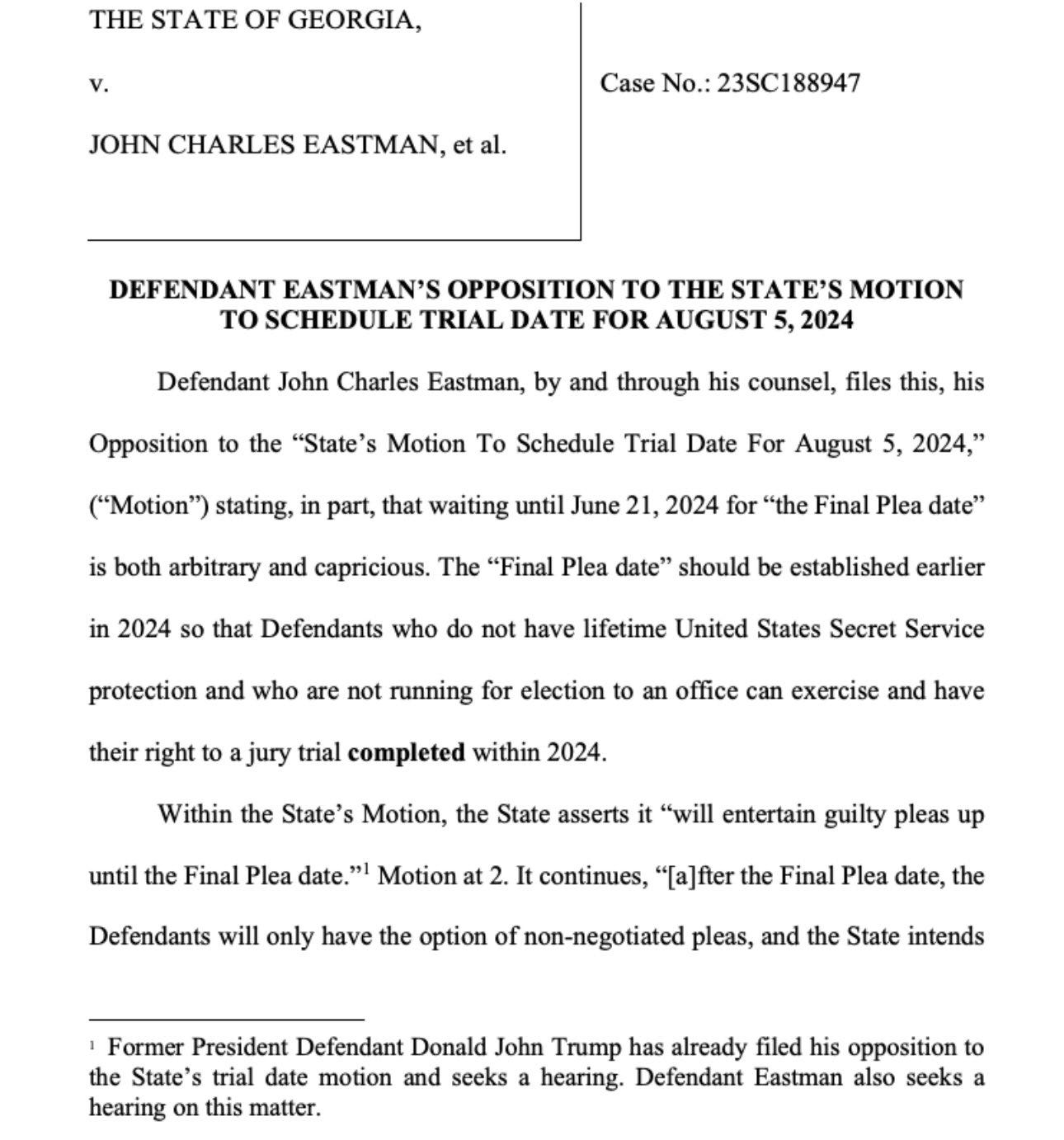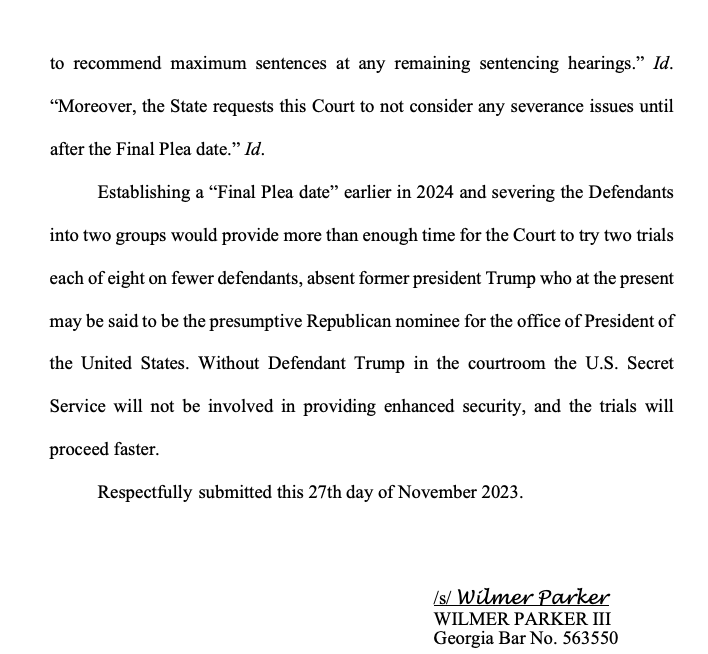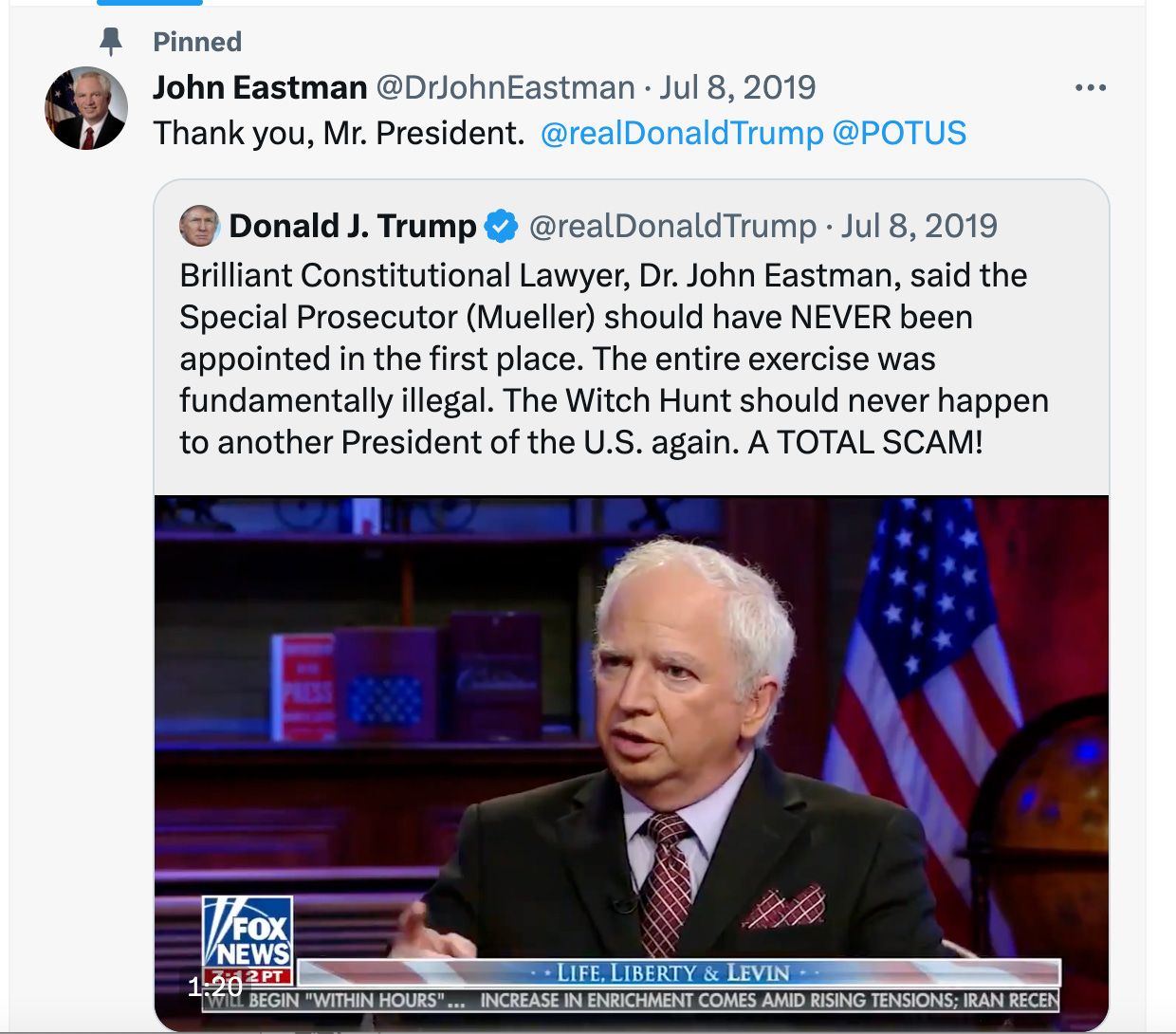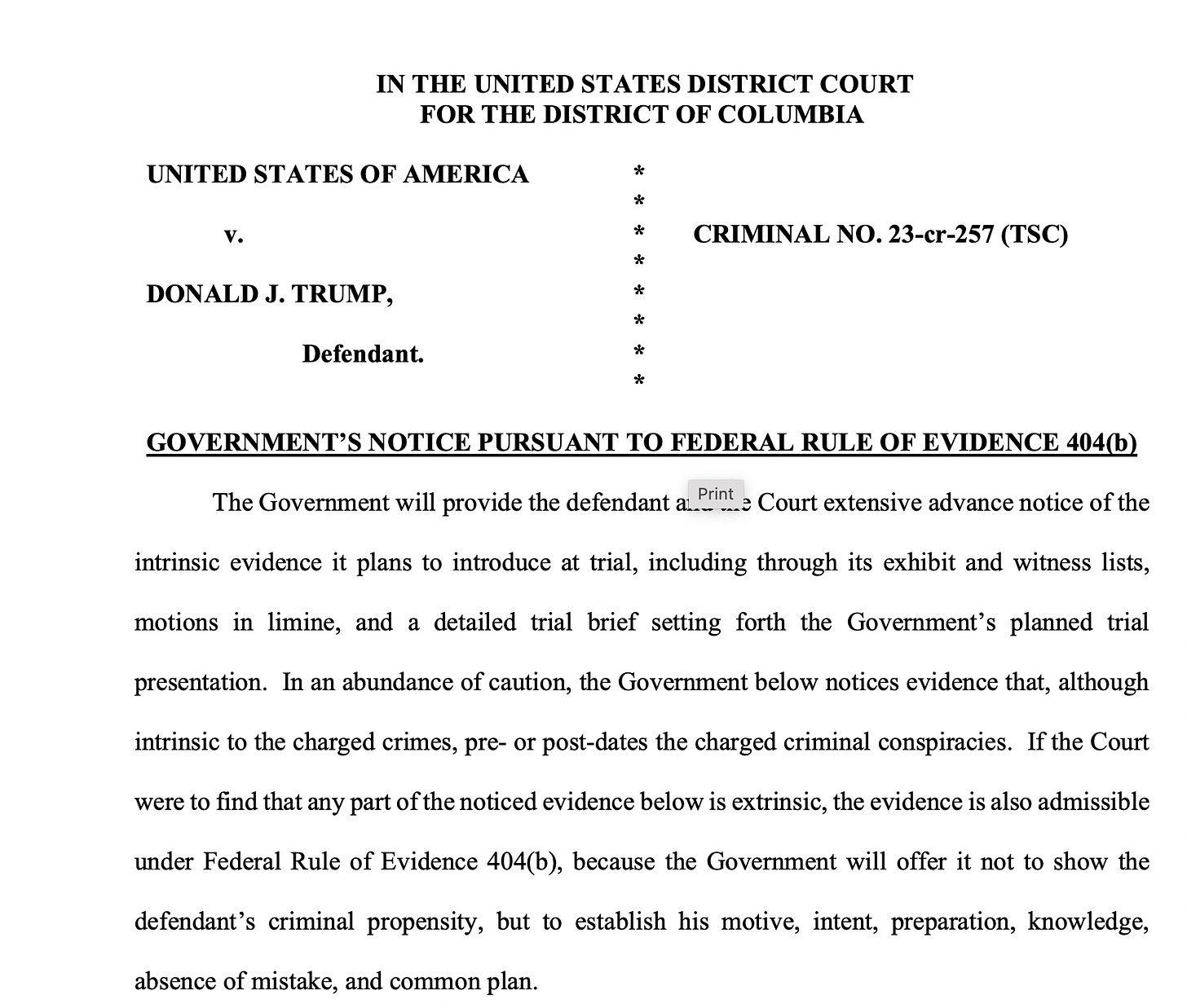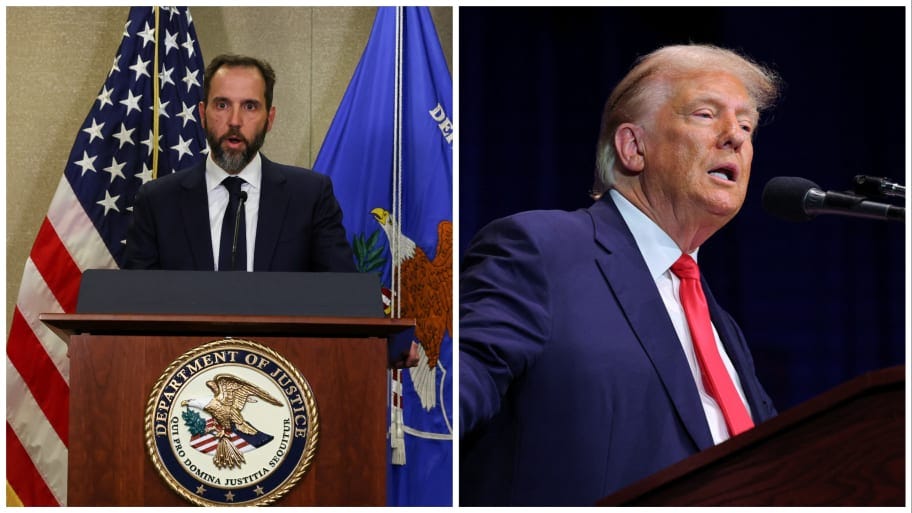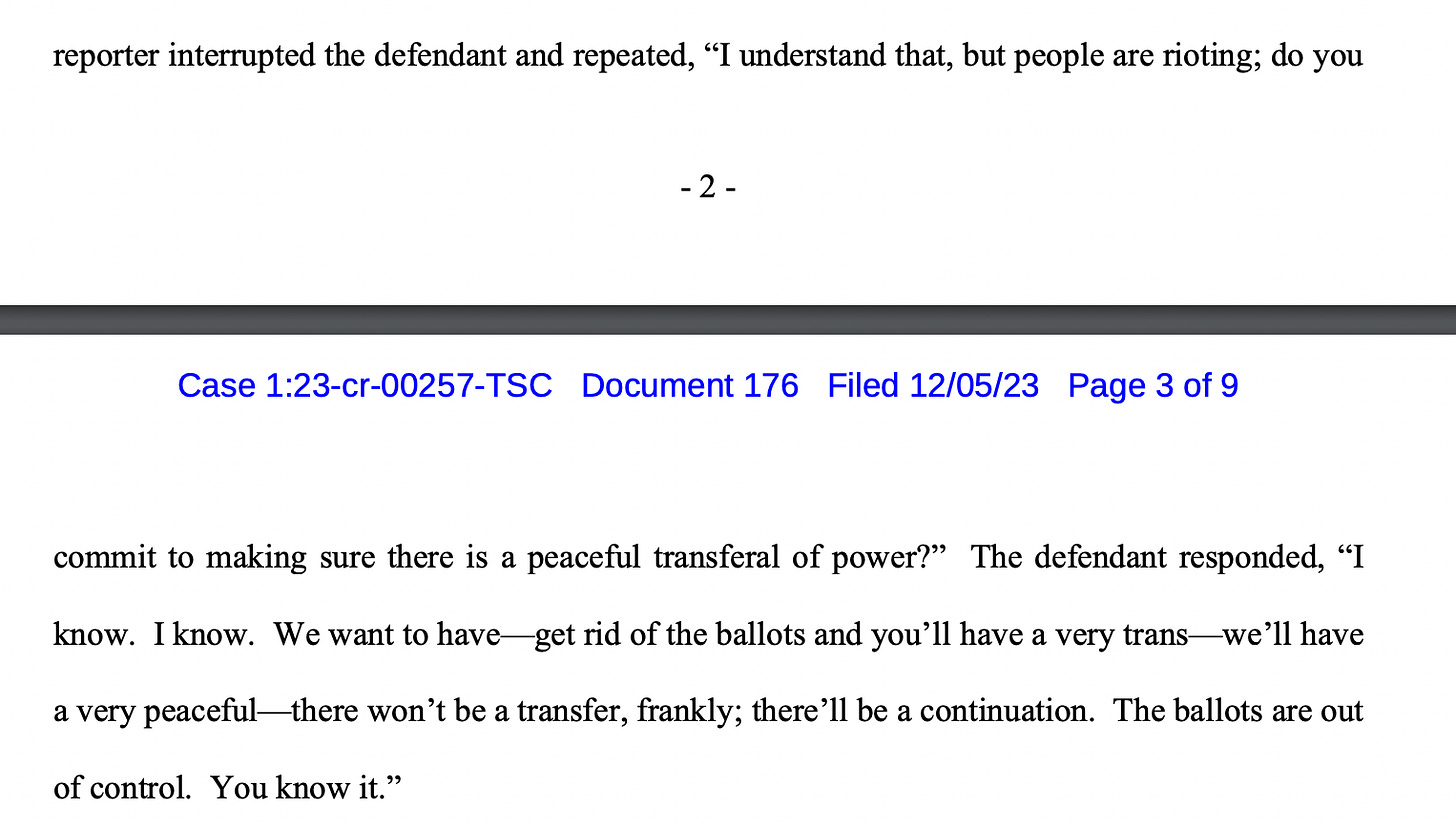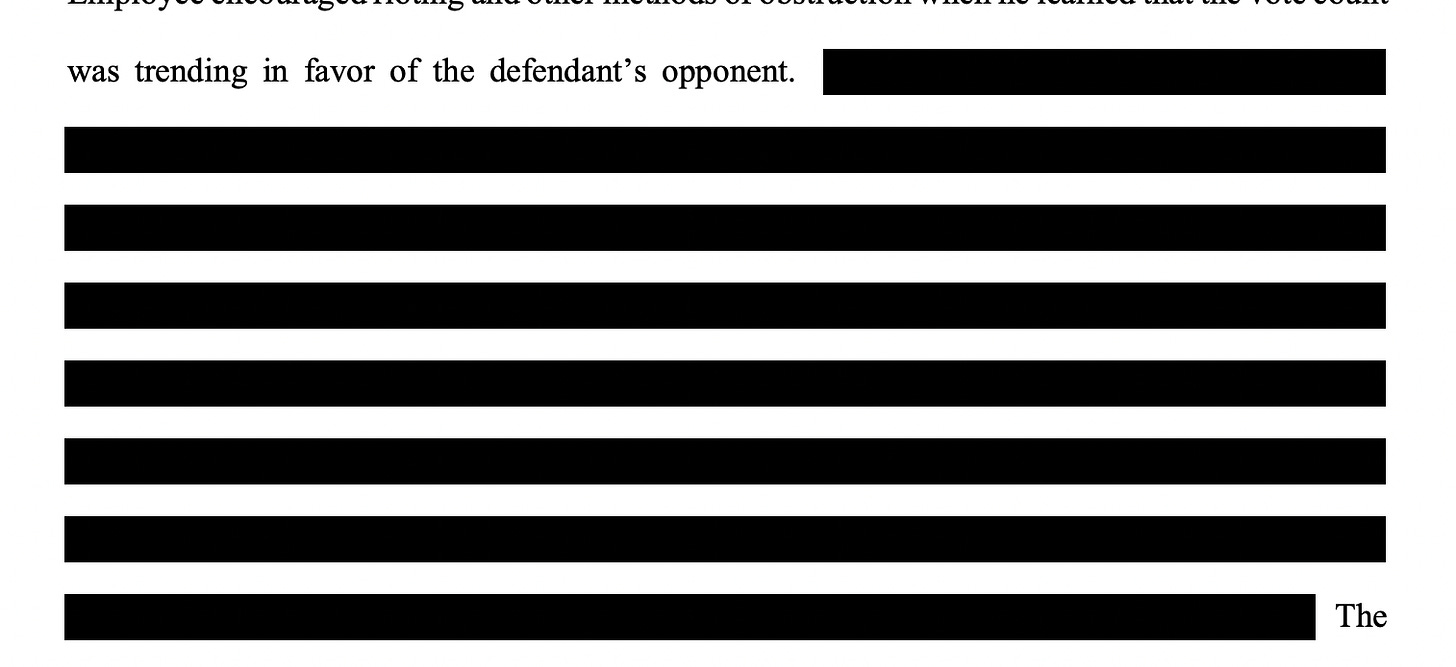Part 4
Smith feels strongly about this last category of evidence, and he offers a lot of reasons it’s admissible. He says it proves Trump’s motive and intent, that on January 6 he sent his angry group of supporters “to the Capitol to achieve the criminal objective of obstructing the congressional certification.” Smith says it proves the Trump intended to obstruct the certification because he “held, and still holds, enormous influence over his supporters’ actions” and chose not to end the violence on January 6. But Smith says the most important proof the evidence provides is that Trump’s “embrace of January 6 rioters is evidence of his intent during the charged conspiracies, because it shows that these individuals acted as he directed them to act; indeed, this evidence shows that the rioters’ disruption of the certification proceeding is exactly what the defendant intended on January 6. And finally, evidence of the defendant’s statements regarding possible pardons for January 6 offenders is admissible to help the jury assess the credibility and motives of trial witnesses, because through such comments, the defendant is publicly signaling that the law does not apply to those who act at his urging regardless of the legality of their actions.”
Smith gives us a lot of insight into what some of his evidence is and how he intends to use it. There is a lot here that we didn’t know and that suggests Smith’s evidence is deeper, richer, and more compelling, even than what we’ve seen already. Combine that with news today that people like Mike Pence and Bill Barr will testify against Trump in Georgia, which almost certainly signals they are on board in the D.C. prosecution as well, and it’s easy to understand why Trump’s best strategy is delaying the trial—and the increasingly inevitable moment where he’s finally held accountable by a jury.
Also today, six Nevada Republicans were indicted for submitting fake documents in connection with the fake electors scheme in that state. The speculation is that this is, at least in part, the result of Kenneth Chesebro’s cooperation with prosecutors there. He is charged in Georgia with conduct documented in his own emails: he personally drafted the fake electoral documents and sent them, along with directions on filing them, to would-be fake electors. And Chesebro did this not only in Georgia, but also in seven states where the scheme was put into play, including Nevada. That’s why the news he was meeting with prosecutors there garnered so much interest last week.
Something else that’s interesting in this mix. In his proffer to Fulton County prosecutors ahead of his plea there, Chesebro
told them he met with Donald Trump, in person, in the White House on December 16, 2020. We know that because parts, but not all, of that proffer statement were leaked. But there were reports he said he met with Trump as well as with Mark Meadows and Dan Scavino. Chesebro, if—and I think it’s still a big if—he’s committed to testifying truthfully, may be able to offer direct evidence of Trump’s involvement.
Yesterday, Trump acolyte Kash Patel, who served on the National Security Council during the Trump administration,
said that if Trump is elected again, his administration will retaliate against people in the media “criminally or civilly.” This happened on Steve Bannon’s podcast. And Patel’s words were really chilling. He said, “We will go out and find the conspirators not just in government, but in the media.”
So, not to be a drama queen, but that’s the end of democracy right there.
Trump’s campaign
said Patel’s comments had “nothing to do with them.” But Trump has also
promised “retribution” would be a feature of his second term in office. And in a recent Iowa town hall interview with Sean Hannity, Trump missed the easy and obvious answer when Hannity asked if “Under no circumstances, you are promising America tonight, you would never abuse power as retribution against anybody?” “Except for day one,” Trump replied.
What?
This exchange carries echoes of Trump’s response in the presidential debate, the one Jack Smith referenced, where Chris Wallace
asked Trump if he would condemn white supremacist and militia groups, only for Trump to respond, “Proud Boys, stand back and stand by.” We all know how that ended.
Trump’s intentions are out in the open for anyone who is paying attention. His statement to Hannity, that about “day one” and that “after that, I’m not a dictator,” is a bizarre response for a would-be American president. NYU Professor Ruth Ben-Ghiat, scholar in authoritarianism and author of the book
Strongmen, had this to say:
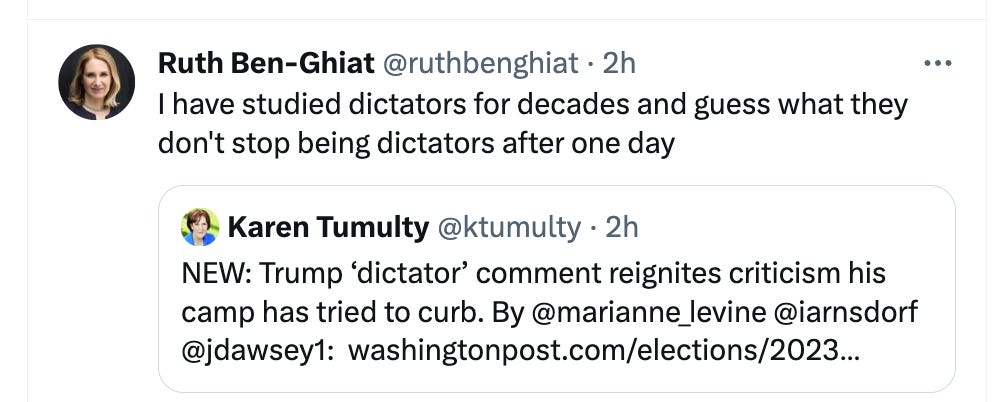
We are all on notice of what Trump intends to do. Now more than ever, and I know I say this almost any time I write to you, it’s critical that we stay engaged and that we try to give those who aren’t information that will wake them up as well. We are in a dangerous moment, and too many people are numb to the implications of a second Trump presidency. Here at Civil Discourse, we aren’t. Please help to spread the word, encourage your friends to subscribe or forward your edition of the newsletter to them. There is lots of work ahead of us.
The Special Counsel files his 404(b) notice

joycevance.substack.com

